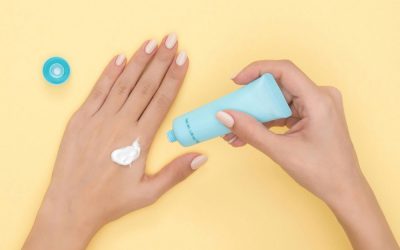Child has severe reaction to 'Black Henna' whilst on holiday - find out the truth about Henna
7-year-old Madison Gulliver has a severe reaction to “Black Henna” whilst on holiday.
This news story is only one of many alarming and saddening stories to have been reported over the past couple of years and highlights just how important it is to know exactly what is going on our skin.

THE FACTS
- Henna is not black! – Henna extract is orange-brown in colour
- “Black Henna” Temporary Tattoos often contain an ingredient called PPD (paraphenylenediamine)
- PPD is used legally in hair dyes but it is illegal for use in products applied directly to the skin.
- When applied directly to the skin PPD can cause painful blistering and burning.
- Even when using hair dyes, consumers must please follow instructions carefully including an Allergy Alert Test 48 hours prior to dyeing hair.
- Sun cream products do not contain PPD! And therefore the same concerns do not apply!
Cliff Betton, Chairman of Delphic HSE had this message to all regarding PPD in Black Henna:
BLACK HENNA
Paraphenylenediamine – PPD for short – is an industrial chemical. It is a simple compound, with a structure as shown below, but one that is very reactive and is used in the manufacture of polymers, linking the components together thus forming many useful materials.
Its’ reactivity is also useful in hair dyes where it is used to link the pigments used to colour hair, to the protein of the hair structure itself, giving a permanent hair colour.
In Europe, the use of PPD in cosmetics and hair dyes is strictly controlled by Law: the concentration is limited to 3% on hair and 2% on eyelashes and appropriate warnings along with recommendations for testing before use are given.
The ability to bind to proteins is what makes PPD useful, but it is also what makes PPD dangerous. As PPD can bind to proteins, there is a possibility that if used in large concentrations, it could penetrate the outer dead layer of the skin and bind to proteins within the skin itself. This binding then changes the structure of the protein and that protein becomes – as far as the body’s immune system is concerned – no longer part of you, but is seen as an invader, like a virus or bacteria, the body’s own defence mechanisms are activated to fight what is now seen as a serious threat.
Because PPD is an industrial chemical, it is comparatively inexpensive and this is where the problem lies. It can dye the skin effectively, but if used without restrictions, it may – and does – start an immune reaction, often after a single contact. In some areas of the world, temporary tattoos, of the type that are commonly to be found at the beach, are not controlled by law and can contain up to 30% + of PPD. A single contact can cause the catastrophic injuries shown in the news. These can and often do lead to permanent scarring. And even if no immediate reaction is caused, the single application of a temporary tattoo on holiday can induce an allergy that then lies dormant until the next time the body encounters PPD, may be years later at a visit to the Hair Dresser. The great majority of people who react to hair dyes in fact have had previous exposure to black henna tattoos obtained on holiday.
PPD is a useful chemical and is present in many hair dyes, but as with all things, the dose makes the poison, and getting a temporary tattoo on the beach, may give rise to pain and scarring that will last a life time. Stay safe, do NOT get a temporary tattoo anywhere that you cannot be certain that the product is safe.”
Delphic HSE fully support the voice of the UKs cosmetics industry the CTPA (Cosmetic, Toiletry & Perfumery Association) in their view on “Black Henna”. Please look at the link below by the CTPA.

Facts about ‘Black Henna’ Temporary Tattoos
If you have any concerns at all arising from this news story then please feel free to contact Delphic HSE.
01252 856700
Learn more about Delphic HSE
FREE Webinar: Understanding the Latest Changes to the CSAR Safety Assessment Requirements
Delphic HSE is pleased to announce our latest Training Webinar – Understanding the Latest Changes to the CSAR Safety Assessment Requirements.
Safety in Beauty Conference 2025
Join us at the Safety in Beauty Conference 2025, proudly sponsored by Delphic HSE, for an unmissable opportunity to stay ahead in beauty safety and compliance.
2024 China Fragrances, Flavours and Cosmetics Industry Annual Meeting and Expo
Delphic HSE to Attend the 2024 China Fragrances, Flavours, and Cosmetics Industry Annual Meeting and Expo in Nanjing – BOOK TO SEE US AT THE EVENT



